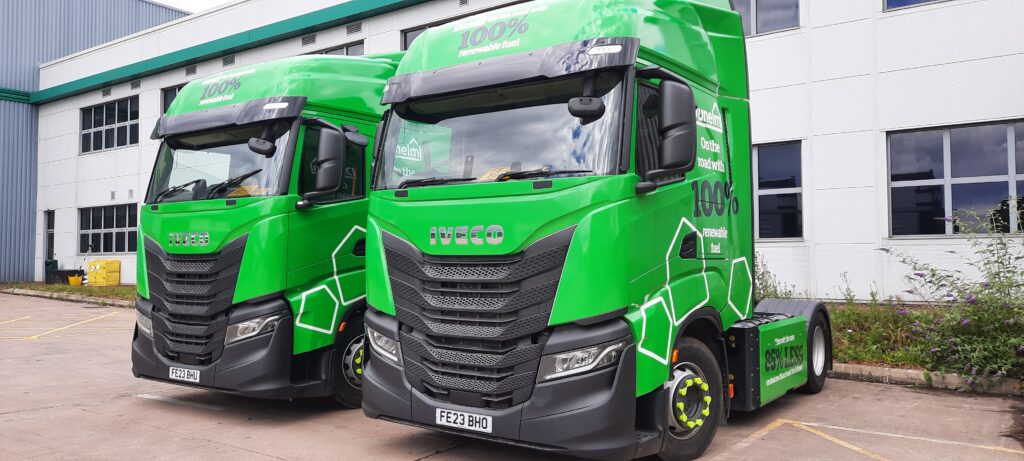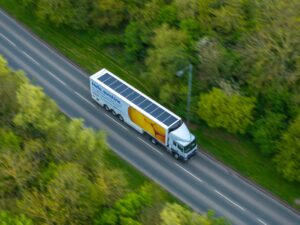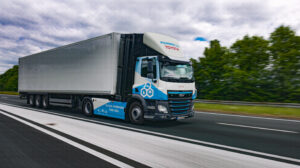Dunelm, the homewares retailer, has invested in ten new delivery vehicles powered by natural gas (BIO-CNG)and electricity to reduce the carbon footprint of its transport fleet and the business.
More than 50% of Dunelm’s operations (Scope 1) carbon emissions are attributable to the Home Delivery Network (HDN) fleet. Dunelm has introduced nine new tractor units from Iveco, powered by compressed natural gas and an additional electric vehicle to support store deliveries to combat this issue.
Compressed natural gas (BIO-CNG) is a renewable energy source derived from food and animal waste decomposition, providing a 100% renewable fuel option. The nine new vehicles that run on BIO-CNG will emit approximately 85% fewer emissions when compared to traditional fossil fuel diesel alternatives and have the added bonus of being up to 50% quieter, meaning noise pollution is reduced as well.
With the transition to BIO-CNG, these vehicles will now emit a much reduced 314 tonnes of CO2 compared to their diesel counterparts. The introduction of the trucks is a landmark moment for Dunelm and marks a significant step towards the retailer’s goal of reducing its carbon emissions by 50% by 2030 (against a 2019 baseline).
Additionally, Dunelm has secured a lease on a 100% electric Volvo tractor unit, one of only a few in the UK. This electric vehicle will be stationed at the Stoke 2 Distribution Center and used for store deliveries. It will be charged at the centre, which operates on renewable electricity, meaning the vehicle won’t emit any CO2 throughout its operational use.
After the investment in cleaner vehicles and by transitioning to BIO-CNG, Dunelm estimates it will save approximately 1780 tonnes of CO2 – an 85% reduction in emissions compared to diesel.
Christina Downend, Head of Climate Change for Dunelm, said: ‘At Dunelm, we are committed to implementing new sustainable initiatives and reducing our environmental impact. This investment in low-carbon vehicles showcases our dedication to providing less impactful and more responsible transportation solutions for our Home Delivery Network. It provides a significant step towards reducing our own operations’ carbon emissions by 50%.’
The fleet updates are the latest initiative in Dunelm’s long-term plan to move to more sustainable production. The brand’s innovative Take-Back and Home to Home schemes allow customers to donate unwanted textiles and homewares to their nearest Dunelm store, with items being rehomed, reused, recycled or turned into brand-new products.
Dunelm’s Conscious Choice collection comprises products that meet sustainability-driven criteria, all made from 50% lower-impact materials. Nearly half also offer an extended guarantee of 5-25 years and have been designed with quality and longevity.
Other already established Dunelm sustainability initiatives include a furniture and mattress recycling scheme and participation in the Textiles 2030 pledge, which aims to halve carbon emissions, reduce water footprint by 30%, and introduce more circular approaches by 2030.




